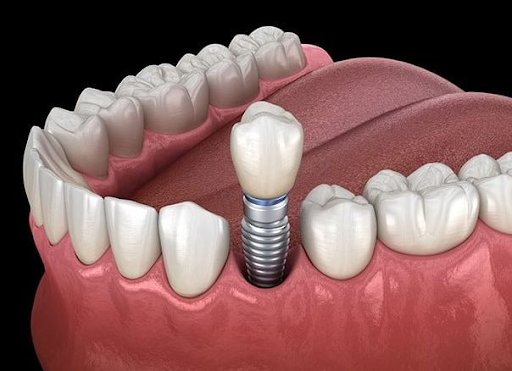Maintaining a healthy mouth goes beyond brushing and flossing. Missing teeth or damaged teeth can affect more than your smile—they impact chewing, speech, and even jawbone health. Modern dentistry offers solutions that restore both function and confidence. Among these, dental implants have become a preferred choice for long-term oral health improvements.
Understanding Dental Implants
Dental implants are artificial tooth roots placed into the jawbone to support replacement teeth or bridges. Unlike dentures, they fuse with the bone, creating a stable and permanent solution. This stability preserves the surrounding teeth and prevents the jaw from deteriorating over time. Dental implants can mimic the look and function of natural teeth, making them a seamless addition to oral care.
Dental Implants and Jawbone Preservation
One key benefit of dental implants is their role in preserving jawbone integrity. When a tooth is lost, the bone beneath can weaken and shrink. The dental implants stimulate the jaw, preventing bone loss and maintaining facial structure. This helps keep your smile looking youthful while supporting overall oral function. Over time, patients with implants experience less bone deterioration compared to those using traditional dentures.
Dental Implants Enhance Chewing Efficiency
Chewing is more than a simple act—it’s essential for digestion and nutrient absorption. Dental implants restore the full functionality of teeth, allowing you to bite and chew comfortably. Unlike removable dentures that can slip or cause discomfort, implants act like natural teeth. This improvement in chewing efficiency contributes directly to better oral health and overall well-being.
Dental Implants Support Adjacent Teeth
When a tooth is missing, neighboring teeth can shift toward the gap, leading to misalignment. Dental implants fill these spaces, stabilizing the surrounding teeth and preventing future dental issues. Maintaining proper tooth alignment reduces the risk of gum disease, abnormal wear, and bite problems. Dental implants thus play a critical role in sustaining long-term oral stability.
Dental Implants Reduce Risk of Gum Disease
Gum health is crucial for a strong oral foundation. Missing teeth can create pockets where food and bacteria accumulate, increasing the risk of gum disease. Dental implants eliminate these gaps and allow for easier cleaning around replacement teeth. With proper oral hygiene, implants can lower the likelihood of infection and inflammation, contributing to healthier gums over time.
Dental Implants Improve Speech and Confidence
Missing teeth or loose dentures can affect speech, causing slurring or difficulty pronouncing words. Dental implants provide a fixed, natural solution that restores normal speech patterns. Beyond functionality, they enhance self-esteem. Feeling confident in your smile encourages better oral care and social interactions, creating a positive feedback loop for long-term dental health.
Dental Implants Offer Longevity and Durability
Unlike other tooth replacement options, dental implants are designed to last decades with proper care. They resist decay and integrate with the jawbone, providing a reliable foundation for years. This durability reduces the need for frequent dental procedures, ensuring that oral health improvements are long-lasting. Patients can enjoy the benefits of implants without constant worry about replacements or repairs.
Conclusion
Dental implants go beyond cosmetic appeal—they are a cornerstone of long-term oral health. By preserving the jawbone, supporting adjacent teeth, enhancing chewing, and reducing gum disease risks, implants create a stable, functional, and aesthetically pleasing smile. Investing in dental implants is an investment in your overall oral well-being, giving you confidence and health that can last a lifetime.


